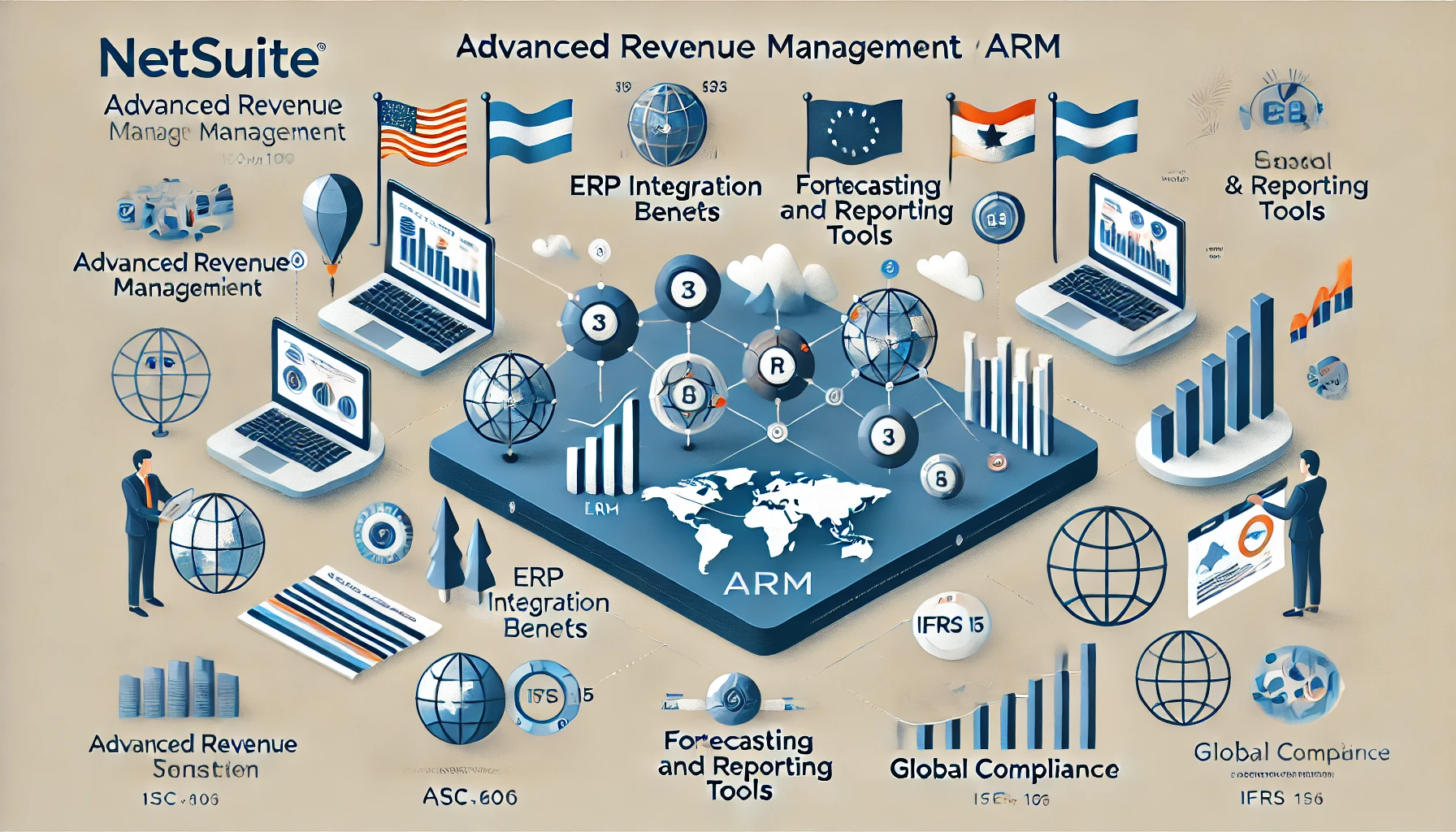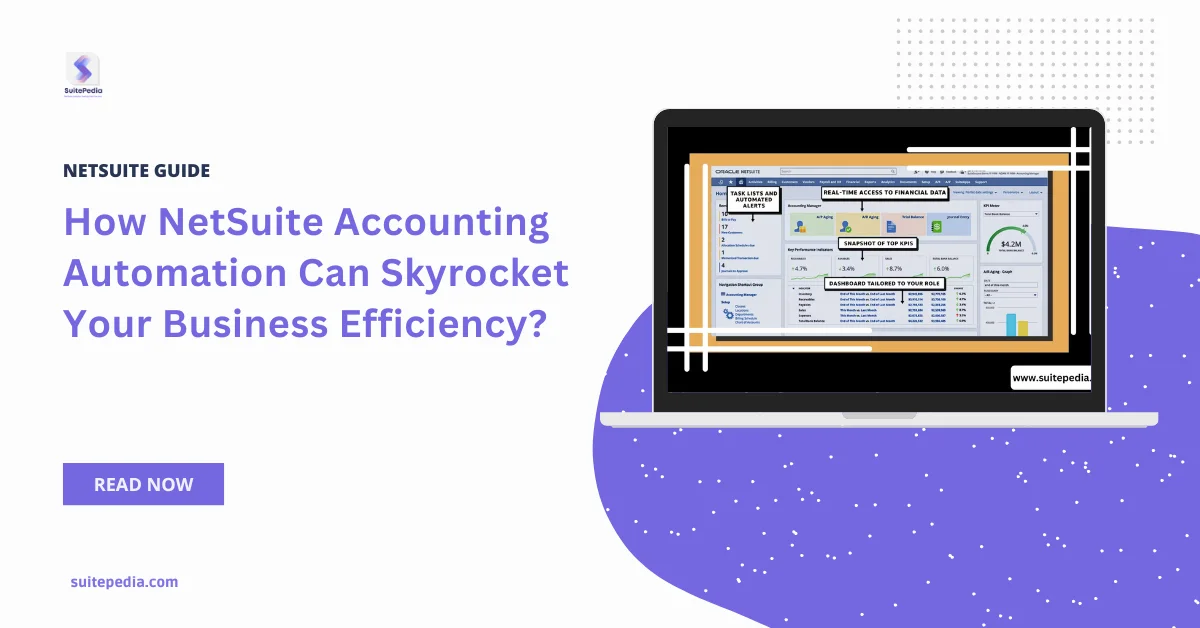In the complex world of global business management, NetSuite financial consolidation operations is a daunting task. Businesses with subsidiary operations across different countries are usually dealing with multiple currencies and compliance requirements, posing a challenge in consolidating their financial data. To this end, NetSuite, one of the pioneers in cloud-based Enterprise Resource Planning (ERP) solutions, provides powerful financial consolidation capabilities for such complex businesses. This blog looks into NetSuite’s financial consolidation features to discuss how it empowers an organization to streamline processes, increase accuracy, and help it derive actionable insights.

Table of Contents
ToggleWhat is Financial Consolidation?
Financial consolidation is the aggregation of financial data from multiple entities within a parent company to produce unified reports. The unified reports provide an all-around view of the financial health of the organization and are therefore compliant with the accounting standards and regulatory requirements. This process generally consists of:
- Combining Data: Combining data from different subsidiaries.
- Intercompany Elimination: Elimination of intercompany transactions to avoid duplication.
- Currency Difference Adjustment: Translation of foreign currency financial statements into the reporting currency.
- Compliance with Standards: Compliance with GAAP, IFRS, or other relevant accounting standards.
NetSuite’s financial consolidation tools simplify these tasks, offering automation and integration to reduce manual effort and errors.

Key Features of NetSuite's Financial Consolidation
- Multi-Entity Management- NetSuite helps companies handle various domestic or international entities under one umbrella. Every entity can run independently yet still maintain its linkage with the parent organization. Some of the important points include:
- A Central Chart of Accounts: All the accounts of all entities can be managed in a unified chart, while allowing individual entities for their needs.
- Real-time Visibility: Obtain updated financial data on all the entities for timely and correct decisions.
- Automated Intercompany Eliminations- Intercompany transactions can complicate financial reporting. NetSuite automates the elimination process, ensuring accurate consolidated financial statements. This feature:
- Identifies and eliminates intercompany sales, expenses, and other transactions.
- Reduces manual errors and saves time.
- Multi-Currency Support- Global organizations often deal with multiple currencies. NetSuite’s multi-currency capabilities simplify currency conversions and adjustments, featuring:
- Real-Time Currency Rates: Automatic updates of exchange rates.
- Consolidated Reporting in Base Currency: Reports can be made in your chosen currency, without consideration to the operational currencies of your subsidiaries.
- Compliance and Reporting- NetSuite helps support global accounting standards, like GAAP and IFRS. Its reporting includes the following:
- Standardized Financial Reports: Pre-built templates of balance sheets, income statements, and cash flow statements
- Customizable Dashboards: Views tailored to performance metrics and compliance adherence
- Tax and Audit Management- With NetSuite, organizations can efficiently manage diverse tax regulations and audit requirements. Features include:
- Automated Tax Calculations: Compliance with regional tax laws.
- Audit Trails: Comprehensive tracking of financial transactions for transparency and accountability.
- Real-Time Data and Insights- NetSuite’s cloud-based architecture ensures real-time access to financial data, enabling businesses to:
- Monitor key performance indicators (KPIs).
- Analyze trends with drill-down capabilities.
- Make timely, data-driven decisions.
- Benefits of NetSuite’s Financial Consolidation
- Increased Efficiency- By automating complex tasks such as intercompany eliminations and currency conversions, NetSuite reduces manual intervention and allows teams to focus on strategic initiatives.
- Increased Accuracy- Automation minimizes human errors, ensuring more reliable financial statements. Accurate data fosters trust among stakeholders and simplifies audits.
- Scalability- NetSuite’s flexibility accommodates growing businesses. Whether expanding into new markets or acquiring subsidiaries, NetSuite scales effortlessly to meet organizational needs.
- Improved Compliance- NetSuite follows global accounting standards and offers strong reporting tools to comply with the regulatory requirements and reduce the risk of penalties.
Improved Decision Making- NetSuite provides real-time data and comprehensive insights, allowing executives to make informed decisions to drive business growth and stability.
Real-World Applications of NetSuite's Financial Consolidation
- Global Retailers- A multinational retail company with subsidiaries across different countries leveraged NetSuite to consolidate financial data efficiently. By automating intercompany eliminations and managing multi-currency transactions, the company reduced its month-end close time by 50%.
- Technology Startups- A fast-growing tech startup with multiple funding rounds and international operations used NetSuite to maintain compliance with GAAP and IFRS. NetSuite’s reporting tools provided investors with accurate financial statements, enhancing credibility and securing further investments.
- Manufacturing Enterprises- A manufacturing company with geographically dispersed operations used NetSuite’s tax management and live reporting. The company streamlined processes for tax compliance and, through increased visibility into KPIs, achieved an improvement of 30% in operational efficiency.
Getting Started in NetSuite Financial Consolidation
NetSuite financial consolidation goes live through a process based on the following steps:
- Assessment: Review current financial processes against pain points.
- Customization: Work with NetSuite’s implementation team or a certified partner to tailor the solution to your business needs.
- Training: Ensure your finance team is trained to maximize NetSuite’s features.
Integration: Seamlessly integrate NetSuite with other business systems for a unified workflow.
Conclusion
NetSuite’s financial consolidation capabilities make it easier for businesses to manage the complexity of multi-entity financial management. With automation of time-consuming processes, real-time insights, and compliance with global standards, NetSuite allows organizations to focus on strategic growth.
NetSuite provides a robust, scalable solution for businesses looking to streamline financial consolidation processes, evolving with your organization’s needs. NetSuite ensures that managing financials across multiple entities is not just efficient but also a strategic advantage in today’s competitive landscape, thanks to its suite of powerful tools.



